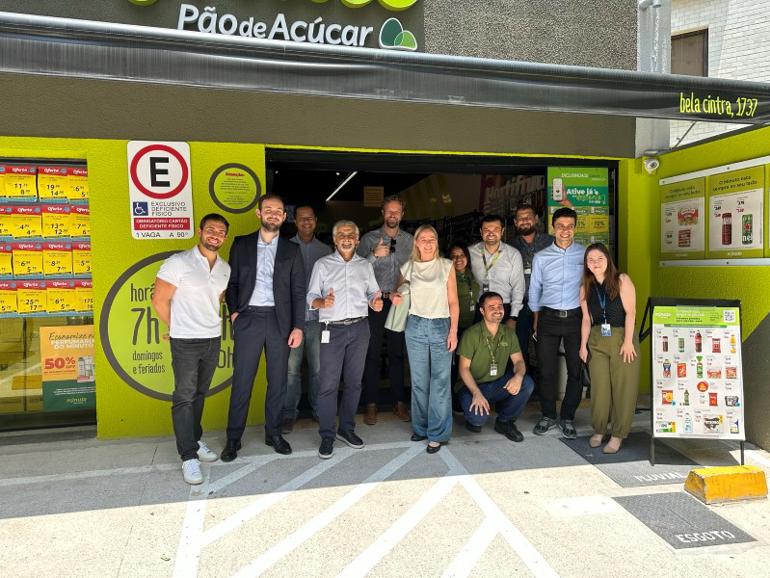The welcome provided by São Paulo is marked by size, contrast, and plentitude. On the descent into Guarulhos International Airport, interchanging skyscrapers, favelas and greenery compete for attention, providing a sharp contrast to the quaint European lifestyles below. Home to more than 20 million people, Brazil's most populous city is known for its food and night life, but São Paulo's walled perimeters, brutalist impression and lack of big-name attractions are just as vivid.
Size, contrast and plentitude holds true for Brazil as well. With over 200 million inhabitants, the country has recently grabbed headlines in Western papers criticizing its struggling democracy with brittle institutions, deep political polarization and fear of backsliding. While there is resonance to those observations, they miss important nuance about one of the world's largest countries that at its core is powerful, ambitious and full of potential. At the same time, Brazil's infrastructure and overt poverty quickly remind you that you are in an emerging market economy.
Between east and west
In the current whirlwind climate of geopolitics, Brazil stands to gain from global supply disruptions thanks to its rich resources and long history of producing energy and agricultural commodities. At the same time, the changing international landscape is challenging Brazil on where to cement its allegiance. Whilst the BRIC nation has particularly deep trade bonds with China – its largest country of export – it does not share the same ideological distaste or distrust for Western governments as Russia and China. With Western economies looking to make up the shortfall in demand from these countries given recent events, Brazil might end up somewhere in between.
The Brazilian economy is ideally suited for the emerging order and its companies should be an increasing force within it. Several of SKAGEN's investments there are microcosms of this broader story – no wonder then that we wanted to pay them a visit and get a sense of what is going on.
None provided greater insight into how the country is modernizing than store visits to Kon-Tiki's retail company holdings Sendas and GPA. Their technology and infrastructure is on a par with Western shops, with several stores undergoing expansion and modernization to cater for Brazil's growing number of middle and upper-middle classes. Continuous development is a requisite for retail success and there is aggressive expansion of express shops in local neighborhoods.

Huge possibilities
We traveled to Brazil to get to know our companies, the people behind them, and the scale of their operations. In general, it is safe to say that our expectations were exceeded – our Brazilian investments are managed by highly professional and skilled people with sustainability and social intelligence embedded in how they view business success.
It has also challenged our impression of Brazil from afar. As with all countries, its direction is determined by the workings of its political and economic systems as well as historic events. This serves as an important backdrop and vantage point for investors today, informing realistic pathways of further development, especially when it comes to sustainability.
For example, the 1950s policy decision by the sitting president to favour highway construction supported by ethanol fuel reverberates today with the technology and opportunity set for tomorrow, as we saw in the case of our energy holding Raizen. Roads and automobiles dominate the landscape in a country where passenger rail is largely non-existent, the potential for rail freight is still untapped, and domestic flights are a cost not everyone can afford, at least on a regular basis.
At the same time, Brazil is blessed with natural resources. You might be surprised to learn that 80% of electricity production is from renewable sources and, unlike many emerging markets, all households have access to electricity. Energy is a pre-requisite for growth and developing economies are typically in an energy deficit, needing to import cheap and carbon intensive sources of power.
Brazil's vast geography means that the country is perfectly placed to leverage its large hydropower network as well as build out solar and wind power to further green the energy mix. It is in a favorable position to scale energy supply in step change with rising demand as a result of economic growth. The carbon intensity of its electricity mix is already cleaner than many post-industrial economies in Europe, such as Germany.
Deforestation is an issue, and the actors harmed most by it understandably have strong views on how to address it. As one of the executives we met told us, whilst deforestation has detrimental environmental impact, one must address it through understanding drivers of poverty and lack of choice. In other words, deforestation is not because of a shortage of land in Brazil but, at least in part, due to a lack of other opportunities for the 20 million people that call the Amazon biome their home. As always, sustainability is a Rubik's cube to be solved in its entirety.
SKAGEN Kon-Tiki has clearly invested in quality companies steered by professional management teams, which is all the more impressive considering how unhelpful and inefficient the broader infrastructure is in enabling their commercial success. As with many emerging markets, the possibilities are huge. It is an economy of scale, where broader infrastructure improvements would only further boost economic growth, standards of living and the ability and competitiveness of Brazilian exports. Size, contrast, and plentitude; Brazil the brave stands ready, its potential unquestionable.




